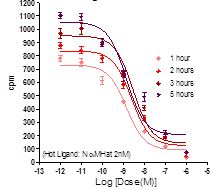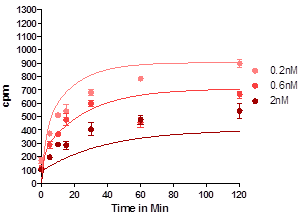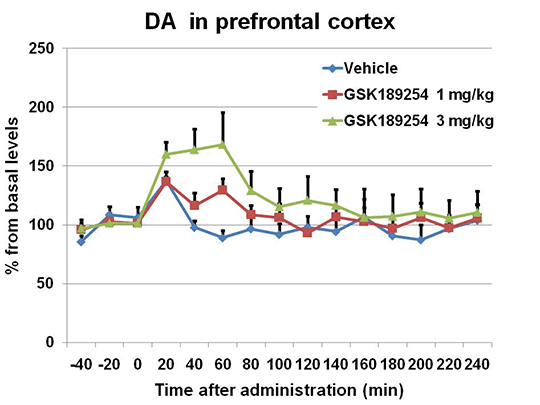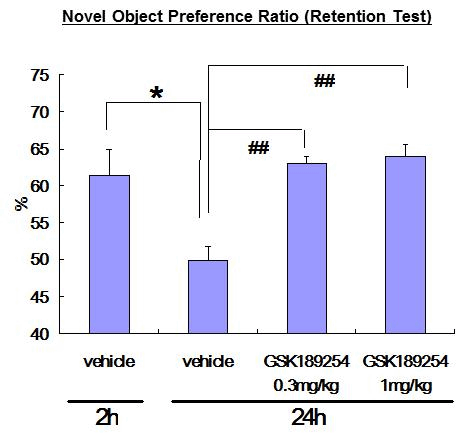The Potential of Histamine H3 Receptor Inverse Agonists for the Treatment of Cognitive Deficits It has been hypothesized that compounds displaying inverse agonism at the Histamine H3 receptor could be useful tools for the treatment of cognitive deficits associated with a number of CNS related disorders. GSK189254 shows selective competitive binding to the human H3 receptor (Ki < 1nM) relative to other histamine receptors (H1, H2 & H4 up to 10μM). Data generated using kinetic binding studies using the methodology of Dowling & Charlton 2006 was in accord with the competitive binding data (Kon 8.3x108 M-1min-1, Koff 0.1115 M-1). Assessment of inverse agonism was conducted using a GTPγS assay.
Compound dosed PO was shown to bind the H3 receptor in the brain, and was able stimulate the release of mono-amines such as dopamine (measured by microdialysis) in the pre-frontal cortex of freely moving animals post receovery. The compound was also able to show improved performance in novel object recognition tests indicating that this approach could be useful for the treatment of cognitive deficits.
P<0.05 vs vehicle 24hrs: 2 way Anova with Dunnett’s test
|





